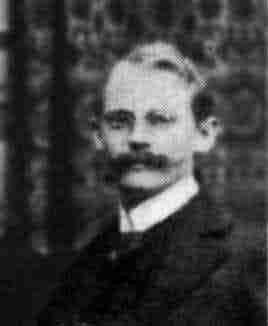

Felix Bernstein was born on 24 February 1878 in Halle Germany to a quite distinguished family. His father was an influential physiologist, and during the height of his career, held the chair in physiology at the Martin Luther University in Halle. His grandfather was a noted journalist, publisher, and scientist. Felix Bernstein's interest in mathematics (and set theory in particular) started when he attended a lecture by Georg Cantor who was a friend of his father. Subsequently Bernstein switched his studies from fine arts to mathematics, eventually earning a PhD at the Universität Gottingen under Felix Klein and David Hilbert.
After graduate school, Bernstien returned to Halle to teach mathematics at the university. He was stripped of his post in 1934 under the Nazi Restoration of Civil Service law. He spent most of the rest of his academic career teaching at various colleges and universities in the United States. After retiring from teaching, Bernstein returned to Europe in 1948. He died on 3 December 1956 in Zurich.
In mathematics, Felix Bernstein is best know for the Schröder-Bernstein Theorem, co-named with Ernst Schröder, a fundamentally important theorem on the cardinality of infinite sets. Outside of mathematics, Bernstein is perhaps best known for his statistical work on human blood typing, motivated in part by his interest in his father's field of physiology.